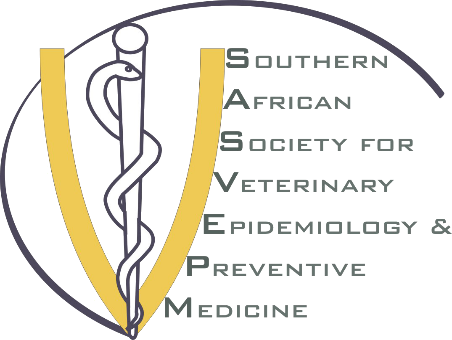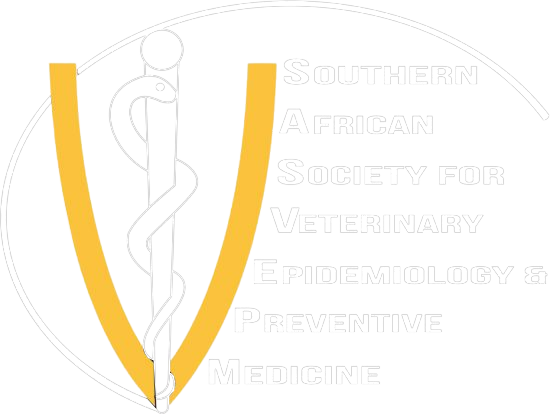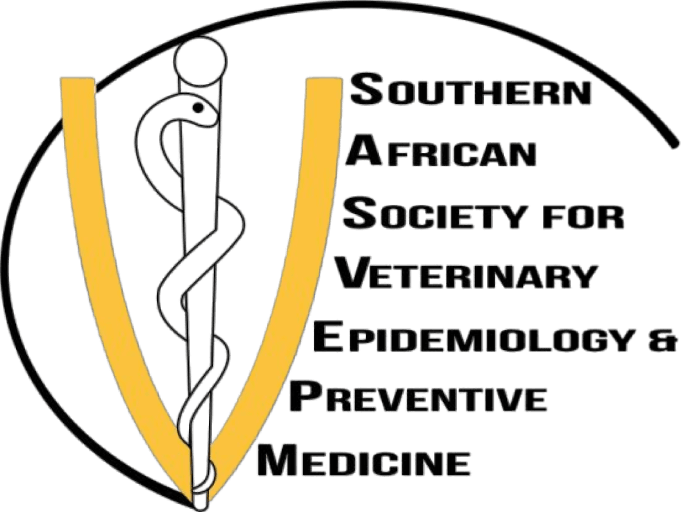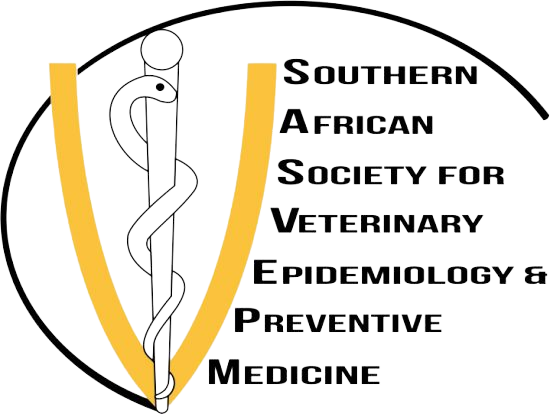
| President | Dr Mohamed Sirdar sirdarm@sasvepm.org or m.sirdar@woah.org |
| Vice President | Prof Chris Marufu chris.marufu@sasvepm.org or chris.marufu@up.ac.za |
| Secretary | Dr Oonagh Pretorius secretary@sasvepm.org |
SASVEPM Pre-Congress workshop 2023: Botswana Report
Title: Fundamentals of Outbreak Investigations in Developing Economies (Veterinary Focus)
The EXCO capacity building portfolio identifies topical issues affecting the region and membership countries. For the 2023 financial year plans were afoot to take training sessions to SADC countries to bring them into the Society to assist in the fight against transboundary diseases.
EXCO approved webinar topics for the year provided funding was found for the exercise. The “Fundamentals of Outbreak investigation in developing countries” was finally approved for the Pre-Congress workshop to be held in Botswana. SASVEPM fully funded the training and drew 20 participants from Botswana and 10 from membership countries. Unfortunately, most of the participants from Botswana Veterinary Services did not attend but officials from the veterinary association and Botswana University of Agriculture and Natural Sciences (BUAN) were part of congress.
Location: Botswana
Target Audience: Veterinarians in the Southern African Development Community (SADC) region
Workshop Overview
· Dates: August 20-21, 2023
· Location: Botswana -BUAN Boardroom
· Target Audience: Veterinarians from the Southern African Development Community (SADC) region
· Organizers: The Pre-congress was organized by Professor Geoff Fosgate (Facilitator), SASVEPM EXCO in conjunction BUAN Animal Health Professionals
Workshop Objectives
The primary goal of the workshop was to enhance the capacity of veterinarians in the SADC region to effectively investigate and respond to outbreaks of zoonotic and animal diseases. The workshop aimed to equip participants with the knowledge and skills to:
1. Understand the principles and methodologies of outbreak investigation, particularly in the context of resource-limited settings.
2. Identify the key steps involved in outbreak detection, verification, and response.
3. Develop practical skills in data collection, analysis, and interpretation.
4. Apply epidemiological tools to determine the source, transmission patterns, and risk factors associated with outbreaks.
5. Collaborate effectively with other stakeholders (e.g., public health officials, laboratory personnel, farmers) during outbreak investigations.
6. Formulate recommendations for control and prevention measures.
Workshop Content
The workshop curriculum covered a wide range of topics, including:
· Introduction to outbreak investigation: Definitions, importance, and challenges in developing economies.
· Epidemiology of infectious diseases: Basic concepts, transmission dynamics, and outbreak terminology.
· Outbreak investigation steps:
o Detection and verification of outbreaks
o Establishing case definitions
o Conducting epidemiological investigations (descriptive and analytical studies)
o Implementing control and prevention measures
o Communicating findings and recommendations
· Data collection and analysis: Methods for collecting relevant data, utilizing appropriate statistical tools, and interpreting findings.
· Laboratory investigations: The role of laboratory testing in outbreak confirmation and characterization.
· Risk communication: Effective communication strategies with the public, media, and other stakeholders.
Workshop Format
The workshop utilized a combination of:
· Lectures: To provide theoretical background and introduce key concepts.
· Case studies: To illustrate real-world scenarios and facilitate problem-solving exercises.
· Group discussions: To encourage interaction and exchange of experiences.
· Hands-on exercises: To develop practical skills in data analysis and interpretation.
Workshop Impact
The workshop aimed to have a direct impact on the preparedness and response capabilities of veterinarians in the SADC region to specifically deal with transboundary diseases. By strengthening their skills in outbreak investigation, the workshop sought to contribute to the following outcomes:
· Early detection and rapid response to outbreaks, leading to reduced morbidity and mortality in animals and humans.
· Effective control and prevention of zoonotic and animal diseases, safeguarding animal health and food security.
· Enhanced collaboration between veterinary and public health professionals, fostering a One Health approach to outbreak management.
· Increased awareness among veterinarians about the importance of outbreak investigation and reporting.
Challenges
Most of the invited guests form Botswana did not attend which was disappointing for the organizers. However, this disappointment was raised with the Botswana Directorate of Veterinary Services. The workshop was very successful particularly on the exercises which took place on the second day of the workshop. Professor Fosgate delivered the best workshop on outbreak investigations.


